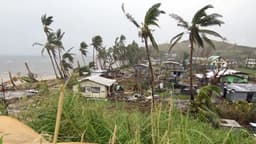Home / Environment / Coral Reefs Reach Unprecedented Climate Tipping Point
Coral Reefs Reach Unprecedented Climate Tipping Point
13 Oct, 2025
Summary
- Coral reefs are the first environmental system to pass a climate "tipping point"
- Warming oceans have caused widespread coral bleaching and death
- Urgent action needed to reduce greenhouse gas emissions and save remaining reefs

According to a new report released in October 2025, coral reefs around the world have become the first environmental system on Earth to pass a critical climate "tipping point." The report, published by researchers at the University of Exeter's Global Systems Institute, examines the fundamental processes that support life on the planet and their proximity to thresholds that may signal permanent damage.
The authors state that tipping points represent "critical thresholds in Earth's climate system where small changes can lead to significant, often irreversible consequences." They warn that the world is "rapidly approaching multiple Earth system tipping points that could transform our world, with devastating consequences for people and nature."
The report highlights the dire situation facing coral reefs, which have suffered extensively in warming oceans. In April 2025, the International Coral Reef Initiative announced that an estimated 84% of the world's coral reefs were under severe heat stress, marking the "most extensive and intense" mass bleaching event ever recorded. This has led to widespread coral death, with scientists estimating that 70-90% of reefs could be lost if global warming reaches 1.5°C above pre-industrial levels.
Coral reefs are crucial for marine life and provide habitats for around a quarter of all underwater species. They also support the livelihoods of approximately 1 billion people globally. Experts warn that the collapse of these ecosystems would have devastating economic and environmental consequences.
The report's authors urge immediate, unprecedented action from world leaders to address the climate crisis and prevent further tipping points from being crossed. They emphasize that the quicker greenhouse gas emissions can be reduced, the better the chances of preserving the remaining coral and other vital systems.




